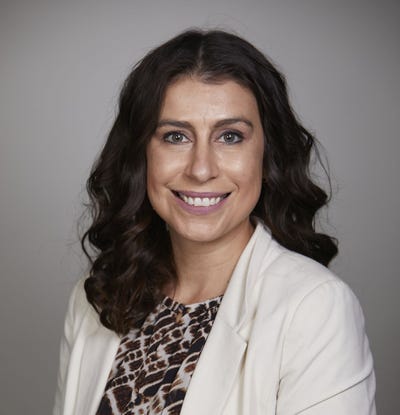.png?width=850&auto=webp&quality=95&format=jpg&disable=upscale)
As we head into Valentine's Day 2012, love will be in the air, but it may seem more like smog to those suffering from a broken heart. Lonely hearts out there may turn to a new dietary supplement, Broken Heart RX to help fill the void left by a former love. However, a review of the ingredients list and the website copy shows this supplement may be running into legal issues.
The Broken Heart RX supplement, made with a proprietary blend of nutraceuticals, is designed to help "take the edge off in the initial stages" of a break up or traumatic event, according to company Tara Becker. Along with the supplement, the Broken Heart RX offers a 30-day email support program and a referral network of experts to help guide people to recovery.
The supplement contains a proprietary blend of natural vitamins, minerals and mood-balancing ingredients known to support physical and emotional health. According to the website, these include, Ignatia Amara, Olive Leaf Extract, St. John's Wort, chamomile, ashwaganda, reishi, valerian, vitamin C, Echinacea, goldenseal, ginseng, zinc and lysine.
Possible Legal Problems
I like the conceptwe have all heard it a million times that supplements alone usually won't create perfect health; diet and lifestyle are also a mustbut I wondered if Becker may be running into legal trouble with her supplement.
For instance, the website has some questionable marketing claims, from a legal perspective. " St. John's Wort is known to help with for depression, anxiety and/or sleep disorders," for instance. "Not only does [goldenseal] help to boost our own immune system, but also assists in fighting bacteria and viruses," is another one.
I called Duffy MacKay, N.D., vice president, scientific regulatory affairs, the Council for Responsible Nutrition (CRN), to get his take, and agreed, saying, "They're dancing in some territory that would likely draw scrutiny." He also noted some other possible problematic areas:
Using "RX" in the name is considered an implied claim, MacKay said. "If you call yourself 'Broken Heart RX,' you're sort of making the implication that you're a prescription."
Some of its testimonials may be questionable. A press release sent in January said psychologist Judith Chusid uses Broken Heart RX with patients in her practice. "My patients are having good results from Broken Heart RX," she said in the release. "They are experiencing a decrease in symptoms such as depression, hopelessness, physical pain and repetitive rumination."
The website lists the ingredients, but doesnt give amounts actually contained in the product. "It's hard to access if the amount of ingredients in the product are associated with the amounts used in the research," MacKay said. "When you have 13 different ingredients in a product, as this one does, sometimes it's hard to squeeze efficacious amounts of all those ingredients unless you're taking a lot of capsules." According to the website, the product serving size is three capsules per day at bedtime.
Substantiating claims around a broken heart may be difficult. "What is a broken heart?" MacKay asked, "Are we talking anxiety, depression, stress, acute traumand suicidal tendencies? There are just so many different things it could be, and they are probably going to have to get more specific." He said the company may want to say the product, "supports a healthy mood during trying times," and use the mood health science on the ingredients. While the site lists several testimonials, Mackay noted these are not considered substantiation. "This clinician may have many positive experience with patients, but you can't use it as evidence of something working; you need science," he said. "They need to either think about softening what they are saying, or they need to think about doing some studies on their product."
MacKay also noticed something odd in the ingredients lists. One of them is a homeopathic ingredientIgnatia Amara. Ignatia Amara is commonly used in a homeopathic setting for grief, but combining it with dietary ingredients into a product called a dietary supplement may not pass FDA scrutiny. MacKay explained, "The tricky thing is homeopathics are regulated as over the counter (OTC) drugs, and dietary supplements are regulated as dietary supplements. FDA has taken the position that OTC drugs and dietary supplement ingredients cannot be mixed." He said FDA has been clear that mixing classic OTCs, such as ibuprofen, with dietary supplement ingredients is illegal. Homopathics, on the other hand, are not as clearly noted by FDA. "
While MacKay said CRN stumbles across companies making much more egregious claims, including those that may cause someone to forgo a medical treatment, he said of Broken Heart RX, "Things like this make us all look not so legitimate." He added that trade organizations are good for companies that truly want to create good products, but are unaware of regulatory limitations. " Trade organizations can help these people and point out where some of the issues may be before the regulators step in."
Company Founder's Response
After talking with MacKay, I reached out to Becker, who founded Broken Heart RX after she said she suffered through love addiction. She said the company's goal is to help people overcome the underlying cause that makes a break up so terrible; she said usually it's love addiction, codependency or some other trauma. She said the supplement is not designed to be taken over the long term, but only for one to three months.
When I asked if she had substantiation for the claims made on the website, she said, "The ingredients in the supplement already have studies. Those ingredients independently make those claims. We're not a depression supplement. St. John's wort is known to help depression, so that's a claim that St. John's wort independently makes. We're not saying anything beyond what that supplements claims to be. We're not saying it's proven, we're saying that's what it's known for. If you look at how St. John's wort is marketed, that's what the claims are. It's supposed to be an alternative for depression. What we did was take all the strong natural supplements that would help someone with the symptoms that come with the initial state they would be going through, and we combined them in a proprietary blend."
She reiterated that the supplement is part of a overall program that includes a 10-minute consultation with Dr. Chusid, daily motivational emails and a referral service of resources. "We're not saying the supplement is going to cure you; it's going to take the edge off in the initial stages while you do whatever work is necessary for your case."
She also noted that her product was approved by New Hope to show at Natural Products Expo West next month, after she changed some of the information on the label, such as the dilution of certain ingredients. And, she added, her manufacturer is FDA approved and provides the appropriate insurance. "I can't imagine that if it was illegal that they would have created it for me," she said of her manufacturer.
Addressing the homeopathic issue, she said she had not heard of it being a problem. I explained the situation as I knew itthat homeopathics are considered OTCs, and OTCs are not allowed to be mixed with dietary ingredients. She decided to call CRN herself to get clarification, and she called me back after she talked with the trade organization.
On the return call, she said, "This is an ambiguous area. The main issue with this are when people are combing acetaminophen or some other kind of OTC medication to treat specific symptoms of sickness with some kind of vitamin supplement. There are no cases with any issues with a combination of homeopathic with vitamin supplements." She added she was going to talk to an industry consultant CRN referred to her to make sure the company is in compliance.
She said CRN also recommended she change some of the terminology on the website, and she said she was going to do so after reviewing FTC's website. "Very few people in the industry have the level of information that [CRN has]. "
Becker seems like she got into this industry to help people, and I think her heart's in the right place (pun intended). It just seems like she needs more guidance on marketing claims as well as information on the legal side of possible problematic ingredient combinations. Could FDA send her a warning letter? From my nonlegal background, I think the agency could. But, if Becker uses industry resources, such as trade organizations and trade publications (in fact INSIDER offers a great on-demand video on claims, "Strategic Plans for Globalization in Claims Compliance"), she can get the help she needs to stay legal in this industry.
About the Author(s)
You May Also Like






.png?width=800&auto=webp&quality=80&disable=upscale)